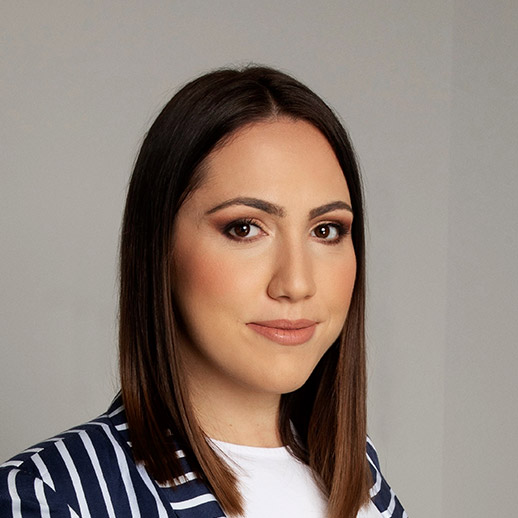The role of artificial intelligence (AI) in the marketing industry
Artificial Intelligence in the service of creativity
It's best to utilize AI as a support and enhancement to human creativity, as their combination brings the greatest benefits in marketing...
- IT February 2023
- Bookmark

We live in a time when artificial intelligence (AI) is making tremendous progress and finding its application in various industries, including creative ones. As someone who began their career in the marketing sector and believes that there is an equal sign between creativity and marketing, with humans as the carriers, I cannot help but wonder whether and to what extent artificial intelligence will be able to replace human creativity, originality, and innovation in this industry.
Artificial intelligence can rapidly process vast amounts of data, from which significant insights or recommendations relevant to the marketing field can be obtained. With the help of artificial intelligence, repetitive tasks can be automated, which is why many companies and marketing teams have rapidly adopted intelligent technological solutions. Based on a practical example, it has been established that using AI can automate up to 80% of routine tasks related to data processing and validation, saving time for marketing professionals and allowing them to focus on the creative and strategic aspects of their work. Additionally, it is known that the use of artificial intelligence can predict the most effective way to deploy a campaign, i.e., the best combination of marketing channels to reach the target audience, maximizing the return on investment (ROI) of the marketing strategy. Studies also support this, showing that AI-based marketing can lead to nearly a 15% increase in sales and approximately a 10% reduction in costs (Accenture). Furthermore, AI can generate various types of content traditionally handled by copywriting. However, the question arises: Can AI, if it can only do what it is programmed for, such as generating ideas based on previous data and algorithms, be "smart" enough to understand human emotions, motivation, and preferences and create a campaign that results in a deeper connection with the target audience and the establishment of lasting impact and trust in the brand?
I cannot deny that AI has the potential to significantly contribute to the efficiency and effectiveness of the marketing industry. Moreover, speed, efficiency, and personalization play a significant role in creating a positive user experience, which is why using artificial intelligence for demand prediction and data-driven decision-making is essential. Additionally, using AI to automate daily tasks can significantly simplify the work for everyone in this industry. However, no matter how powerful and advanced AI is, it cannot replace human creativity. Many experts share a similar opinion, as various studies, including those by companies like Adobe and Forbes, have shown that approximately 85% of respondents engaged in creative professions do not see the development of new AI-based technologies as a threat to their jobs. They sincerely believe that true creativity is a human characteristic that will have an increasingly significant role in the future. Only 16% of marketing professionals believe that AI can completely replace human creativity in marketing, with most believing it is best to use AI to support and enhance human creativity rather than trying to replace it.
Does this mean that experts and creative individuals in the marketing field should completely turn to artificial intelligence or neglect it in their business? Neither. Both artificial intelligence and creativity have essential roles when it comes to raising awareness about a brand. Although it may be easy to believe that one should exclude the other, this is far from the truth. The most significant benefits arise when AI and human creativity come together. While AI may not be able to come up with new original ideas and concepts, which is why human creativity will continue to play a crucial role in the industry for a long time, artificial intelligence should be embraced as a significant tool in the present and even more so in the future of the marketing industry. In other words, AI should be a mandatory but supportive part of every marketing team, while natural intelligence will retain the leading role, at least for some time. Ultimately, it is crucial to remember that artificial intelligence and human creativity are not competitors but complementary parts of marketing.











